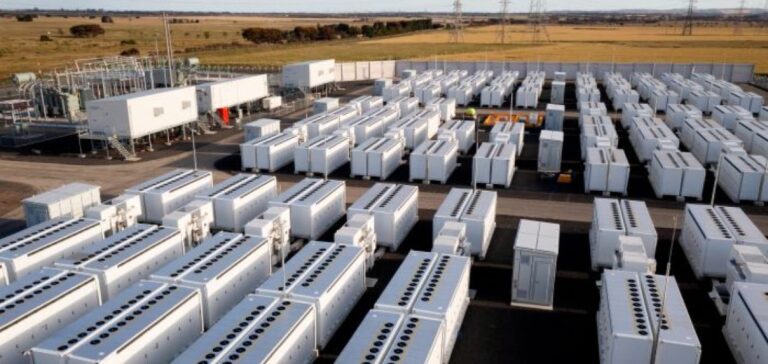SolarBank, a company active in the renewable energy sector, has launched the construction of its first battery energy storage system (BESS) project in Ontario, marking a significant step in its energy diversification strategy. This project, supported by a CAD 25.8 million financing from the Royal Bank of Canada (RBC), aims to enhance grid stability in the province while responding to the increasing demand for clean and flexible energy solutions.
The project, for which the exact capacity details have not been disclosed, aligns with the broader trend of increasing investments in energy storage infrastructure. With the growing share of renewable energy in the market, storage solutions such as BESS are becoming essential for managing the intermittency of sources like wind and solar power. This type of project is particularly relevant in a region like Ontario, where grid reliability challenges remain a key concern.
A Strategic Financing for Energy Infrastructure Growth
The CAD 25.8 million financing from RBC highlights the increasing interest in energy storage projects, a key sector in the energy transition. This financing is structured as a credit facility, enabling SolarBank to expand its operations while mitigating the financial risks associated with long-term infrastructure projects. The bank has stated that this initiative aligns with its broader objective of supporting projects that advance energy transition efforts in Canada.
With strong financial backing, SolarBank is expected to accelerate the development of this project and potentially initiate new ones in the coming years. The company aims to become a major player in the renewable energy sector, with a particular focus on energy storage solutions. RBC’s support could play a crucial role in the company’s rapid expansion and its ability to seize growth opportunities in this emerging sector.
Energy Storage: A Pillar of Grid Optimization
Battery energy storage systems (BESS) are central to modern grid optimization, as they help stabilize electricity supply, particularly when renewable energy production varies significantly. BESS can store excess energy generated during periods of low demand and release it during peak consumption periods.
In Ontario, such a storage system could have a significant impact by reducing costs associated with managing demand peaks and integrating new renewable energy sources. This would not only improve grid efficiency but also help reduce reliance on fossil fuel-based power sources when necessary.
Technological advancements in battery storage, particularly innovations in lithium-ion batteries, have driven down costs, making these solutions more accessible and financially viable. In this context, SolarBank’s project could pave the way for broader adoption of similar technologies in the province.
A Contribution to Ontario’s Energy Objectives
This project aligns with Ontario’s goals of modernizing its energy infrastructure and increasing the share of renewable energy in its energy mix. The provincial government has implemented various initiatives to encourage the integration of renewable energy, including energy storage, to strengthen grid resilience while meeting emissions reduction commitments.
Energy storage projects like SolarBank’s are also supported by incentive policies that aim to encourage investment in technologies that can optimize energy production and consumption. These policies help reduce the carbon footprint of the energy sector while supporting the transition toward smarter and more efficient grids.





















